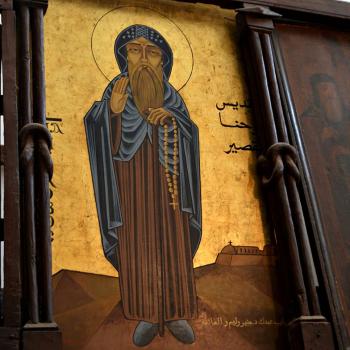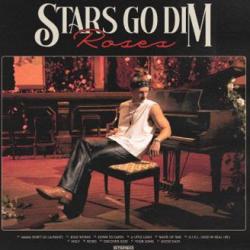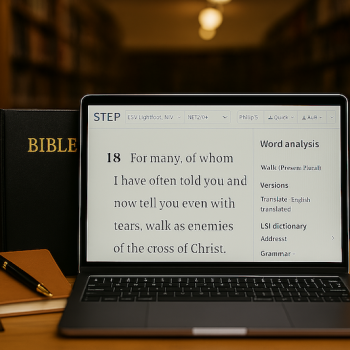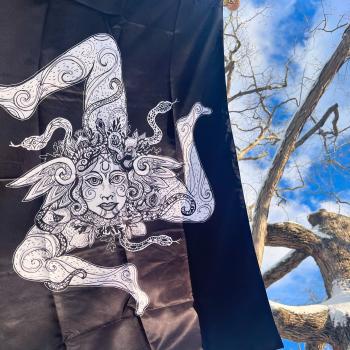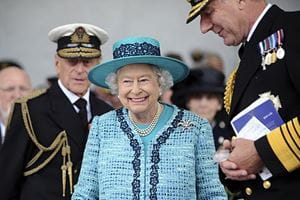
It’s well known that some events are so momentous that you never forget where you were when the news broke. In years to come, surely the death of Queen Elizabeth will rank among such upending occasions as tie themselves forever to the place where the sad headline first reached us.
I was teaching piano at home and heard a BBC notification boom from someone’s iPad. I knew straightaway what it was. Earlier on, the Queen’s failing health had begun quickly to deteriorate; a public announcement on the same day wasn’t a good omen. The piano lesson ended, and it was my student’s dad who confirmed what I suspected: Her Majesty the Queen was dead.
Elizabethan Britain was all I had ever known; the Queen had reigned for seven decades, an unprecedented record in the UK. Writers like Roald Dahl would weave her into their stories. In the British imagination, she was mythic in stature – on par with such legendary figures as Henry V and Elizabeth Tudor.
The day Her Majesty passed away, Boris Johnson tweeted, ‘She seemed so timeless and so wonderful that I am afraid we had come to believe, like children, that she would just go on and on.’ If I, having only seen a fragment of Elizabeth’s rule, could sympathize with Johnson’s words, then the sense of loss must have been amplified still further for older generations.
God, in His mercy, seems to have granted Elizabeth what all of us wish for when our time comes – and which, in our service of Compline, Anglicans pray for – ‘a perfect end,’ or a peaceful death.
In John’s Gospel, Christ – whose death was anything but a peaceful one – says, ‘The reason my Father loves me is that I lay down my life – only to take it up again. No one takes it from me, but I lay it down of my own accord’ (10.17-18a, NIV). Jesus intuitively knew when the time for His departure was right.
Without wishing to deify the late Queen, I like to think that Her Majesty too – when she felt her work as monarch was complete, or when she sensed her Lord’s call – quietly lay down in the comfort of Scotland’s Balmoral Castle, and then silently committed her gentle soul to heaven.
Elizabeth died on the traditional feast day – kept in the Catholic, Anglican and Orthodox Churches – for the Nativity of the Blessed Virgin Mary. This was poignant on two levels. Firstly, the world’s attention fell on our Queen’s dedication to her Commonwealth on the day when Christians everywhere honour Mary, the mother of Jesus, for her steadfastness. A pair of inspirational Christian women, the Queen of Heaven and the Queen of Britain, shared the spotlight on 8th September 2022.
Moreover, the theme of birth might have seemed inapt in the face of death were it not for the sombre joy that heralded the start of a new Carolinian Age. As the Second Elizabethan Era came to an end, we sang “God Save the King” – most for the very first time, others for the first time in seventy years – as Charles III assumed his mother’s duties.
The days ahead would offer time to reflect on Her Majesty’s reign. For me, she will be remembered as a model of all that is noble about our country – someone on whom to model our national character. The Queen’s legacy does not, I wouldn’t say, consist in a list of achievements – plentiful though they were – but in an open-hearted approach to her vocation as national and international figurehead.
In her famous Christmas messages, delivered in various festively garlanded rooms in royal residences over the years, Queen Elizabeth captured the Christian faith’s fundamental truths with beautiful simplicity. She probably wouldn’t have described herself as a pastor, much less a theologian, but in her signature broadcasts, Her Majesty proved herself a more able preacher than many a bishop.
Try this, from her 2015 address: ‘Despite being displaced and persecuted throughout his short life,’ remarked Elizabeth of Our Lord, ‘Christ’s unchanging message was not one of revenge or violence but simply that we should love one another.’ In 2016, in the wake of a deeply divisive Brexit vote, she counselled us, ‘Christ’s example helps me see the value of doing small things with great love.’
These Christmas Day speeches are now fragments of history to be cherished. As I write, we have just said our final goodbyes to the Queen. Her Majesty’s coffin lay draped in the Royal Standard underneath Westminster Abbey’s glorious High Altar today, four golden-yellow candles forming a square around her casket.
It was time, as those four points of light shone brightly, to remember the light Elizabeth II gave to the four corners of our United Kingdom: Wales, Northern Ireland, Scotland and England.
It has been a significant weekend. Yesterday, several hundred miles from Westminster, we had our own service of remembrance for Queen Elizabeth in my home parish. I read the second lesson: John 13.1-17, Jesus washing His disciples’ feet and instructing them to do likewise. It’s a classic example of servant leadership. To those of us present, all of whom watched our Queen serve us well into her old age, the connection between the text and Elizabeth’s own attributes was obvious.
My fear for our individualistic western countries is a possible decline in solidarity between the generations; I worry that we shut older people away from society. This month, I felt a little more optimistic. I have been uplifted, even in such a time of sadness, by the way Britain’s constitutional monarchy has brought old and young together on a shared emotional journey.
This was especially true when the new King toured these lands, the British Isles, after the Queen’s death. An eight-year-old I tutor, on the day His Majesty came to Northern Ireland, skipped into his piano lesson eager to tell me his news: he was able to bag a royal handshake!
As you can tell, I’m not a republican; I’m a firmly persuaded monarchist. (I do love my debates with republican friends, though!) Plenty jumped on social media for decidedly less amicable exchanges with strangers when the Queen died, as you’d expect. Whether to praise or disclaim our institutions, everybody wanted a say.
But whatever else Queen Elizabeth represented, she stood as an indictment of our era’s egoistic tendencies. As Andrew Sullivan expressed it on Substack, ‘it’s hard not to fear that so much she exemplified – restraint, duty, grace, reticence, persistence – are disappearing from the world.’ Even the zaniest anarcho-communist would have to confess as much about Elizabeth on a purely human level.
Post-Elizabethan Britain still seems a peculiar prospect. I wouldn’t be surprised if our country feels a bit rudderless for a few months longer; that was always inevitable, but I’m confident in our new King’s ability to rally the nation’s positivity the way his mother did – that is, provided we give him the chance he deserves. Roll on a joyful Coronation!
10/12/2022 5:14:37 PM
